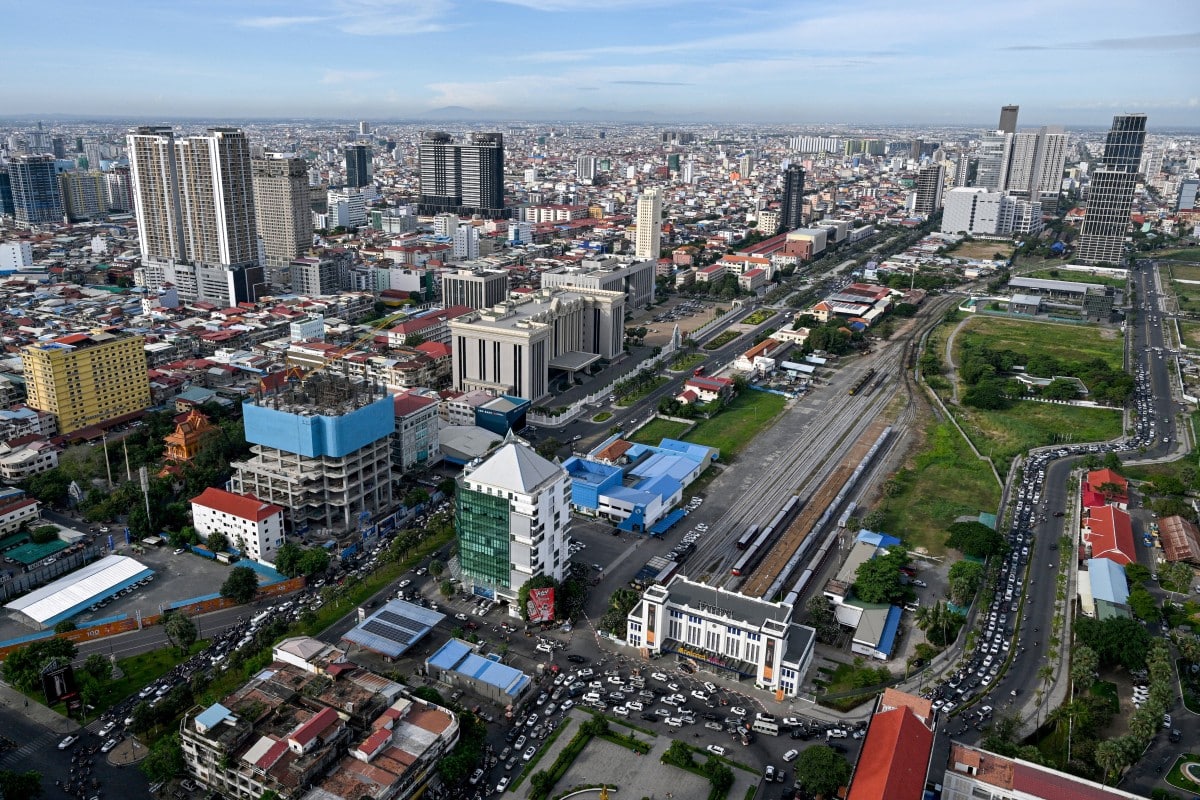
Skyline of Phnom Penh, capital of Cambodia —Photo by Tang Chhin Sothy/Agence France-Presse
MANILA, Philippines — Thirteen Filipino women recruited to be surrogate mothers in Cambodia have been convicted of human trafficking-related crimes. What happens now to the soon-to-be-born babies?
Justice Undersecretary Nicholas Ty told reporters on Wednesday that while the Philippine officials are still discussing the babies’ fate with their Cambodian counterparts, Manila had already communicated its position that the children would be considered Filipinos.
“Under our law, it’s simple: the woman who gives birth to the child is the child’s mother, and her nationality will be followed,” said Ty, head of the Inter-Agency Council Against Trafficking (Iacat) in the Philippines.
READ: 13 Filipinas get 2-yr sentence in Cambodia for violating surrogacy ban
Based on the informal discussions, Ty said, the Cambodian government’s primary concern is the welfare of the children since they are the real victims in the case.
Challenges ahead
“They don’t want the situation where, if they hand over the children to us, they are given to the mothers and sold by the mothers. That’s what they want to avoid because our fellow citizens were charged for [trying to] sell the children,” he said.
Ty said they would process the babies’ birth certificates in the Philippine Embassy in Phnom Penh if Cambodia agrees with Manila’s position.
“There is a big possibility that once the children are brought to the Philippines, we will refer them to the [Department of Social Welfare and Development] and [National Authority for Child Care] to assess the best options for them. They will study whether it would be better for the children to be placed for adoption,” he said.
One of the 13 pregnant women has already given birth to twins, so the total expected babies is likely 14.
Ty cited potential challenges, like the possibility that the children are carried by Filipino women in the womb but are not biologically related to them, or that the surrogates do not share the same DNA since the eggs used were not theirs.
The DOJ official was referring to gestational surrogacy, a process where the surrogate mother carries and gives birth to a child that is not biologically related to her, as the egg is provided by the intended mother or a donor, while the sperm came from the intended father or a donor.
Reduced sentences
Ty said the government is concerned as to whether the surrogate mothers will be willing to accept the babies in such situations.
The Iacat, through the embassy, also confirmed the Kandal Provincial Court’s decision dated Dec. 2, which found the 13 women guilty of violating Cambodia’s 2008 Law on the Suppression of Human Trafficking and Sexual Exploitation.
Cambodian authorities imposed a four-year prison sentence on the women. But they could be allowed to serve only two years unless convicted of another crime in the country.
The surrogate mothers initially faced a sentence of 15 to 20 years for intending to sell the babies, but the lawyers worked to have their sentence reduced.
“This is the best outcome the Cambodian government could offer us,” Ty said.
The 13 women were among 20 Filipinos arrested by Cambodian authorities in September. Seven of them, who were not yet pregnant, were repatriated to the Philippines on Oct. 23 without facing any charges, Department of Foreign Affairs spokesperson Eduardo de Vega told the Inquirer on Tuesday.
According to Ty, Filipino women agreeing to become surrogates are usually paid up to P500,000 once they have delivered the baby and also receive monthly financial support during pregnancy.

